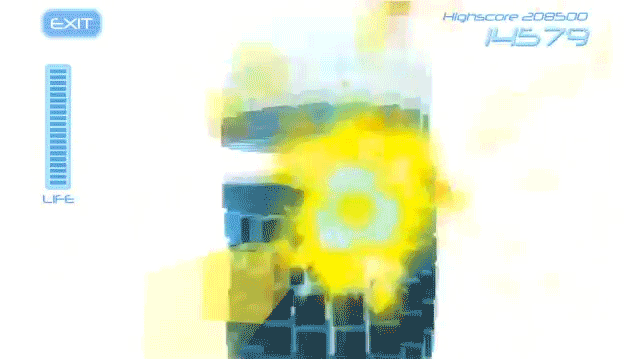Over the next several weeks, we’re spotlighting the top 20 3D Jam experiences chosen by the jury and community votes. These spotlights will focus on game design, interaction design, and the big ideas driving our community forward.
Created by the team at Common Extract, Q finished in 14th place for its fast-paced gameplay. We caught up with Managing Director Rob Lee to ask about the creative process behind Q, which is now available free for Mac and Windows from the Leap Motion App Store.
Your original trailer from September has smooth background music compared to the game soundtrack. How did your ideas about Q change through development?
We wanted to experiment with how music can dramatically change players’ perception of the game, from artsy to arcade, and vice versa. Music changes the mood, changes the perception, and even changes the way how it should be marketed. Music is one of the key dominant elements in this game.
Artsy: Not Afraid by G-Splif
Arcade: Messing Around with Pebbles by Madmath (below)
Do you see Q as more artsy, arcade, or both?
We’ve always appreciated art, and personally, art installations. The city we’re based in (Johor Bahru, Malaysia) had been touted as a ‘cultural desert’ by some for many years, and we’ve witnessed local art lovers that want to change it by taking action (for example, with the JB Arts Festival). Q is an art project inspired by them. As a mobile apps and games developer, we share the love of games, we share the love of arts, and we share the love for the place we call home.
What was the biggest challenge for you in developing Q?
Time! As we have several client projects going on concurrently, we needed to focus on our bread and butter before we could experiment with Q. We’re amazed and inspired by games like Journey and Child of Eden – as the experiences that they bring forego the importance of “game length.” If you play these games by looking at the clock, you’re playing them wrong.

Do you have any tips for other developers looking to create fast-paced minimalist games?
The key thing, in our opinion, it is to let users forget that they are interacting with a piece of technology. To let the control device be invisible and to engage them, to hide the flaws, and most importantly, have fun! Always ask yourself, “is this or that necessary? How often will users look at it?”
What’s your next big project?
Our resources restrict us from expanding Q as of this moment, unless people disagree and really think that we should expand it, or hey… Kickstarter? Who knows? We’re currently looking for partners, collaborators, or even potential clients to produce the next cool game – or art for that matter!
What do you think about Common Extract’s work with Q? Let them know on Twitter @CommonExtract.




